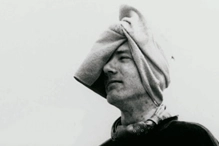Woodcutters
May 04 2006 to May 20 2006
This former student at the Mozarteum, returning to Vienna after a long absence, this fifty-year-old with sick lungs who hears of the suicide (by hanging) of Joanna, a childhood friend not seen in decades, this now well-known writer accepts, to his surprise, an invitation to dinner, supposedly in memory of Joanna, but organized before her death in honor of an old actor from the Burgtheater who has an enormous success in The Wild Duck - this man bears a lot in common with Thomas Bernhard. And these similarities are not fortuitous. They aren't the only ones, either. Almost immediately after it came out in Austria, Woodcutters was banned and taken to court by composer Gerhard Lampersberg, who claimed the character of the senile, alcoholic and obscene Auersberger was based on him. Bernard, a real lord of scandals, couldn't ignore that all of Vienna was going to see the similarities: it was public knowledge that he was linked to Lampersberg at the end of the 1950's. Just as, thirty years earlier, still young and perfectly unknown, Joanna's friend had spent much time with the Auersberger couple - who incarnated the ideal of an existence entirely dedicated to the cult of beauty - before cutting off all contact with their Viennese circle from one day to the next, in order to continue elsewhere the work that would make him, alone among this entire set, a true artist.
Eulogy of escape and melancholy of homecoming, hypocritical comedy of reunions, horror of oneself and of others who there is a good chance of resembling, shame and discomfort when faced with a bygone past that continues to survive in hideous decrepitude, bloody humor of the moralist - and hate, implacable hate of all the mediocre compromises with which one can't sometimes help taking part: there is all that in Woodcutters, a cruel meditation on the powers of deception and lies that falsify existence. Throughout the "artistic dinner," young sparkle of old days, the time of beginnings, illusions and apprenticeships, are confronted with the abominable present by the last-minute guest, who examines himself, recapitulates and reflects all while observing the room from the depths of his winged chair, without stopping to question the reasons which could have pushed him to commit this abject failed act: accept such an invitation. In this terrible work of introspection and biographic exploration, in this auto-critical auto-fiction that turns into a wholesale massacre, there will only be a single voice in this recollection of a night - not of the narrator, but of the actor - to tear us away from the inauthentic and say in all honesty, even if it means abolishing it in the following minutes, this thing so incredible it becomes almost inaudible: a little bit of the truth.
The stage artist thus fugitively articulates the words of truth that the word artist gathers, recreates, records and amplifies. It's not surprising that an actor be very interested in Woodcutters. And if there's someone meant to incarnate it, it's Hervé Briaux. Because this novel deals with, among other things, the steadfast consistency an artist needs to show in the name of his work. That being so, Briaux - soon joined and supported by Sylvie Orcier and Patrick Pineau - has serenely carried, defended and honed his project to bring Woodcutters to the stage since he discovered the novel in 1999. While participating in numerous projects staged by Georges Lavaudant (including, Orestes, Fanfares, Un Fil à la Patte and Danton's Death), he composed an adaptation, then waited patiently to get the stage rights (it should be said that never before has a stage adaptation of one of Bernhard's novels been authorized). He first interpreted the role one night in Grenoble, where the audience's warm response confirmed his intuition: this novel was theatrical and made to be played. This time, we've arrived: the "artistic dinner" has been set; Hervé Briaux is waiting for you.


